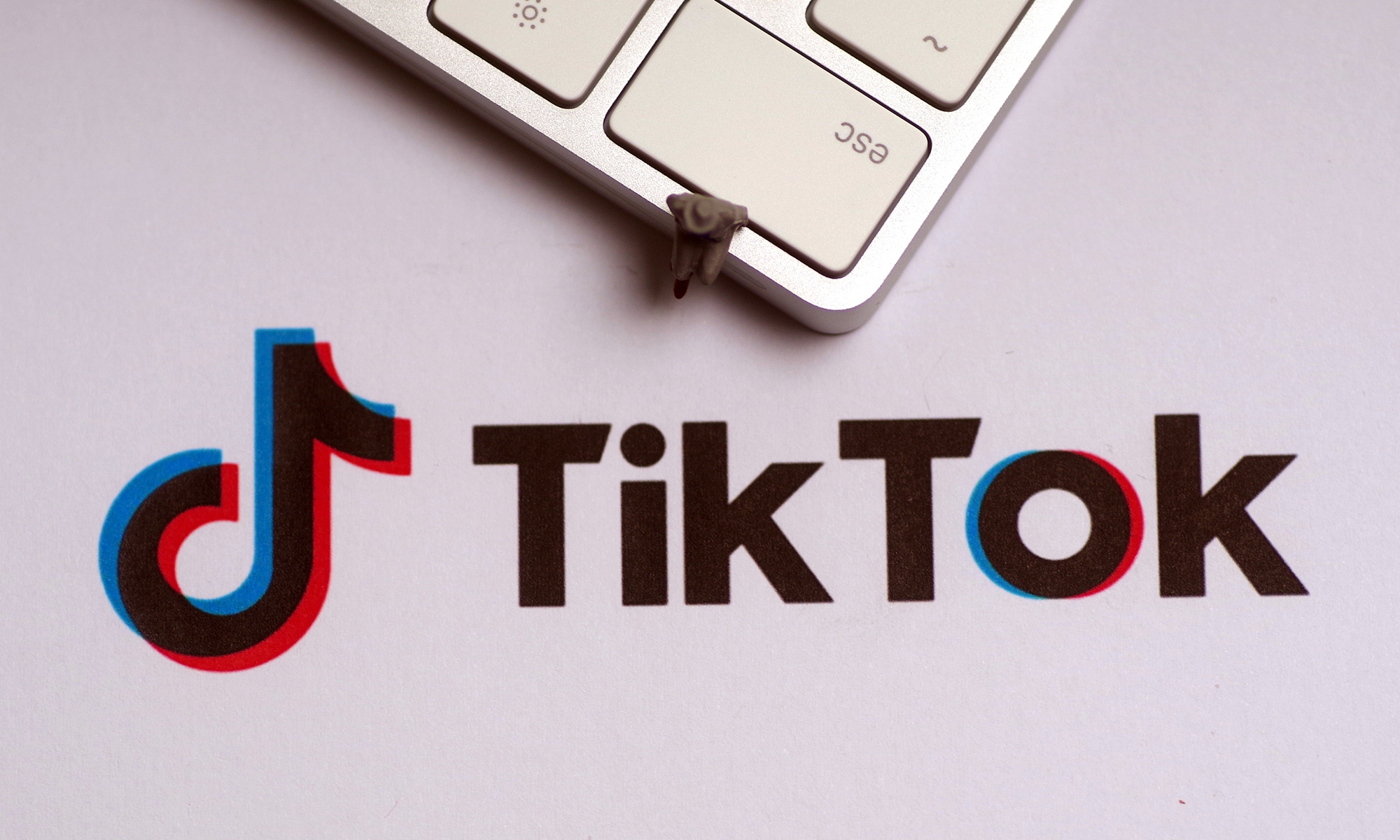TikTok, an app that has melted the hearts of young Americans, is banned from the American cultural melting pot

TikTok Photo: VCG
"I'm not perfect," Charli D'amelio, a 16-year-old girl from Connecticut told host Jimmy Fallon with a confident smile on The Tonight Show, "but I accept myself."
Her confidence comes from being a "Dance Queen" on TikTok with 75 million followers. To help her fans cope with the COVID-19 pandemic, she posted home dance videos with her sister Dixie which have earned billions of likes. The sisters are now working with UNICEF on a campaign against cyber violence. Her experience, as Jimmy rightly pointed out on the show, is "just perfect for this app".
In the United States, about 45% of teens aged between 13 and 16 have downloaded TikTok. The American Generation Z, growing up in the social media culture, have gained laughter, applause and satisfaction from the app. As of May this year, TikTok has been downloaded more than 2 billion times worldwide, and the number of downloads in the United States reached 165 million, accounting for 8.2% of the global total. In June, TikTok topped the lists of Apple Store and Google Play, leading the four traditional social media giants in the United States, WhatsApp, Facebook, Youtube, and Instagram.
Why is TikTok so popular? Here is how. Kevin Roose described the app in a New York Times article: "About an hour after downloading TikTok, the popular video-sharing app, I experienced a bizarre sensation, one I haven't felt in a long time while on the internet. The knot in my chest loosened, my head felt injected with helium, and the corners of my mouth crept upward into a smile."
However, as threatened by President Donald Trump, TikTok has to choose between either a complete ban in the U.S. or a forced sale in 45 days. U.S. officials have vaguely accused TikTok of threatening the privacy of American users and the national security of the U.S., despite the fact that TikTok's user data is stored in the U.S..
Among TikTok's accusers is Facebook CEO Mark Zuckerberg. Worried about TikTok's rising popularity with young Americans and Facebook losing its market share, Zuckerberg claimed that he believed China had absolutely stolen technology from US firms at a recent congressional hearing. His testimony, however, contrasted with that of the CEOs of Google, Apple and Amazon, who testified that they had only read about the so-called "China stealing technology". Zuckberg's verbal attack on TikTok and other Chinese tech companies is perhaps because Facebook has tried to immitate TikTok's success but failed spectacularly. Neither Lasso, Reels or other similar apps have taken off with young fans.
Or perhaps, for some U.S. politicians, simply being Chinese-owned is enough to seal TikTok's fate in the U.S. They are increasingly bent on attacking anything Chinese or more broadly,decoupling the Chinese economy from the U.S'. By threatening to ban TikTok, the U.S. has put its commercial reputation and cultural diversity at risk. The Amercian society, which prides itself on being a cultural melting pot, would not tolerate an app that has melted the hearts of young Americans.
